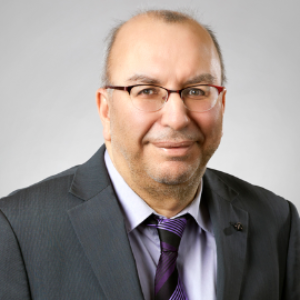Title : The built environment and climate change: The path to net zero and neutral built infrastructure
Abstract:
In 2015, the Paris climate change conference led the way to combat climate change and accelerate and intensify the actions and investments needed for a sustainable low carbon future. In 2017, Mission 2020 released a strategy by which “countries should commit $300 billion annually to help cities and states fully decarbonise buildings and infrastructure by 2050, with cities upgrading at least 3% of their building stock to zero- or near-zero emissions structures each year”. The built environment has a big impact on the environment: Globally, buildings account for about 35% of resources, 40% of energy use, consume 12% of the world’s potable water and produce almost 40% of global carbon emissions. The picture is quite similar in Canada: 35% of Canada’s GHG emissions, 50% of natural resources consumption, 12% of non-industrial water use and 25% of waste going to landfill. Over the past couple of years, technology and innovation trends to support greening the built environment encompassed: energy analytics, generative design, Internet of things and AI- artificial intelligence. Concurrently, with natural disasters an ever-present threat that can devastate communities, technology can help community leaders address critical needs and build a more resilient future. Indeed, AI- artificial intelligence with data analytics applied to infrastructure resilience has the capacity to enhance the security and resilience of critical infrastructure, as well as improving planning and response to natural and man-made disasters. In the wakes of a global pandemic coupled with intensifying climate change impacts, building as usual is no longer a sustainable alternative. This talk will firstly review the current state of applied innovation to tackle resilience and climate change in the built environment, then discuss some of the adaptation and paths to building better and for the future to achieve a Carbon neutral Ir Carbon negative built infrastructure


